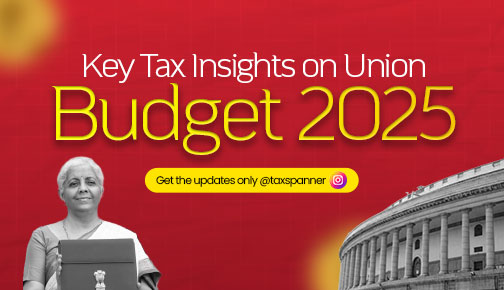ITR Filing Deadline & AY 2025–26: All You Need to Know
It’s that time of the year again, the season of income tax returns which is a crucial time for Indian taxpayers. Just like paying your bills or renewing your insurance, filing your ITR is one of those important things that keeps your financial life in order.
For most individuals in India, the last date to file the Income Tax Return for the financial year 2024–25 (assessment year 2025–26) is July 31, 2025. However, the income tax department has extended the due date to September 15, 2025 due to late availability of tax filing utilities on their platform. In case, if you miss it, you could end up paying a penalty, something that you can easily avoid with a little pre-planning.
Filing your ITR on time is not just about avoiding fines. It also helps when you apply for loans, visas, or even when you're planning your long-term finances. It’s a simple habit that goes a long way in keeping things smooth and stress-free.
Important ITR Due Dates for FY 2024-25 (AY 2025-26)
- Individuals, Hindu Undivided Families (HUFs), Salaried Employees (Non-Audit Cases): This includes salaried individuals, freelancers, and self-employed individuals not requiring a tax audit.
Due Date: July 31, 2025
- Companies, Partnership Firms, & LLPs (Requiring Tax Audit): This applies to businesses and professionals whose turnover exceeds the prescribed limit, needing an audit under Section 44AB.
Due Date: October 31, 2025
- Companies & Firms (Transfer Pricing Cases): Taxpayers engaged in international transactions or specified domestic transactions needing a Transfer Pricing Report under Section 92E fall into this category.
Due Date: November 30, 2025
- Belated and Revised Returns: This is for taxpayers who miss the original due date or need to correct mistakes in a previously filed return.
Due Date: December 31, 2025
FILE NOW
The ITR filing start date for FY 2024-2025
- Gather all income documents: Collect salary slips, bank interest statements, capital gains reports, rent receipts, freelancing income records, and any other relevant documents.
- Calculate and pay tax due amount: First determine your tax liability and pay any outstanding taxes that is due in order to avoid interest penalties in future.
- Verify TDS & TCS credits: Check your Tax Deducted at Source (TDS) & Tax collected at source (TCS) credits on Form 26AS and your Annual Information Statement (AIS).
- Update bank account details: Make sure your bank account details are accurate for faster refund processing.
- Organize your records: Keep all financial documents in order so you're ready when the e-filing portal is fully updated.
FILE NOW
Consequences of Missing the ITR Due Date
Missing the ITR filing deadline can lead to financial and legal repercussions, including late fees and penalties:
- Late Filing Fees (Section 234F):
- Rs.5,000 if your total income is above Rs.5 lakh and you file after the due date but before December 31, 2025.
- Rs.1,000 if your total income is below Rs.5 lakh.
- No penalty if your income is below the taxable limit (i.e., zero tax liability).
- Interest on Outstanding Tax (Section 234A): You will incur 1% interest per month (or part of a month) on the unpaid tax amount, calculated from the original due date until you file your return.
- Loss of Carry Forward Benefits: If you file your return late, you typically lose the chance to carry forward business and capital losses to offset against future profits.
- Delay in Refunds: If you expect a tax refund, it will only be processed after you file your return, causing delays if you miss the deadline.
- Reduced Time for Corrections: Late filing shortens the time available for fixing errors or revising your ITR.
- Legal Consequences and Prosecution: High-income taxpayers may face prosecution for failing to file returns, which can result in imprisonment for 3 months to 2 years.
- Difficulty Processing Loans: Many banks and financial institutions ask for ITR as proof of financial stability for loan applications. Late filing can complicate this process.
- Automatic Selection of New Tax Regime: If you miss the July 31st deadline which is extended to September 15, 2025 now, you might automatically switch to the new tax regime, losing the option to choose the old one.
FILE NOW
How to File Income Tax Returns (ITR) Online
- Income Tax Portal Login: Go to the official Income Tax e-Filing website (www.incometax.gov.in) and log in using your Permanent Account Number (PAN).
- Choose the appropriate ITR Form One the basis of your income type:
- ITR-1 (Sahaj): For salaried individuals.
- ITR-2: For individuals earning from capital gains or having multiple income sources.
- ITR-3: For business professionals.
- ITR-4 (Sugam): For presumptive income taxpayers.
- ITR-5, ITR-6, ITR-7: Applicable for companies, firms, and trusts.
- Fill in Income, Deductions & Tax Paid Details: Enter all relevant details regarding your income, deductions (like those under Section 80C, 80D), and taxes already paid.
- Verify & Submit the Return: After filling out all details, verify the return using options like Aadhaar OTP, Net Banking, or Digital Signature Certificate (DSC).
- E-Verify Your ITR: Completing the e-verification step after submission is crucial for quicker processing of your return.
FILE NOW
Conclusion:
The ITR filing deadline in 2025 is your reminder to pay your taxes on time. Missing it not only costs you money in penalties but also limits your ability to carry forward losses and delays tax refunds. Whether you are a salaried employee or a small business owner, filing your income tax return on time ensures compliance, savings, and peace of mind. So, mark your calendar for July 31, 2025, and consider filing before September 15, 2025 to meet the deadline with ease.
Explore TaxSpanner's wide range of calculators for your tax planning and calculations!
View Tools & Calculators



